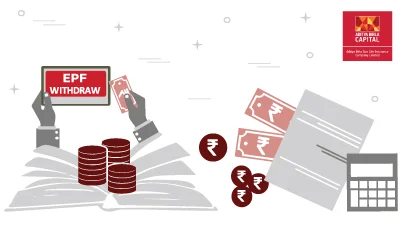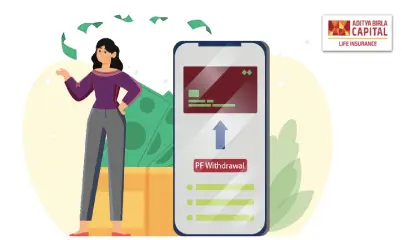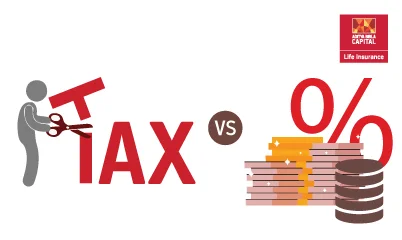Here are some tips that can help you receive tax breaks:
1. Home Loan:
When you are structuring your home loan, you can avail yourself of the benefits offered by Section 80C of the Income Tax Act. This will help you receive tax deductions up to INR 1,50,000 on the principal loan amount as well as INR 2,00,000 on the amount of interest paid under Section 24.
2. Saving Account Interest Earnings:
Interest earned from saving accounts is usually tax-exempt up to a limit of INR 10,000. The same threshold is raised up to INR 50,000 for senior citizens under Section 80TTB. This limit is applied to the total of all savings accounts of the individual.
3. NRE Account Interest:
NRE account holders are Indian citizens who currently don’t reside in the nation. They receive interest earnings from both fixed deposits and accumulating amounts. The amount of interest earned is tax-free.
4. Life Insurance Policy:
Section 10 exempts the maturity sum from the individual's income tax liability given that the insurance premium is less than 10 per cent of the total guaranteed
4 (if the insurance policy is bought after 1st April 2012). For plans obtained before this time, the maturity sum is free from taxation if the insurance premium is 20 per cent of the total guaranteed
4. This group also includes policies acquired after 1st April 2013 that insure the life of an individual with a handicap or a condition listed under Income Tax Act Sections 80U or Income Tax Act Section 80DDB, respectively. If the insurance premium is less than 15 per cent of the total insured, the amount paid at maturity is free from taxation.
5. Scholarships:
Scholarships are awarded to some deserving students in order to assist them in coping with their educational expenses. Section 10(16) provides that this scholarship money is tax-free income.
6. Equity or Equity MF Gains
Equities or Equity Mutual Funds are an important part of almost everyone’s investment portfolio. However, these investment instruments can provide tax deduction up to INR 1,00,000 if they are kept for at least a year and then sold.
7. NPS Contributions
Section 80C of the Income Tax Act offers tax deduction up to a limit of INR 1,50,000 on contributions made to the National Pension Scheme. This is yet another important investment route for individuals looking at a long-term investment horizon.
8. Provident Fund Interest:
Any interest earned on an ongoing provident fund is exempt from taxes.
9. Education Loan:
Due to the ever-increasing cost of higher education, education loan is becoming a new norm for students in the nation. However, students need to be aware that the amount of interest paid on the student loan is not subject to taxation under Section 80E. There is no limitation on this amount.
10. Health Insurance Policy:
Policyholders of an ongoing health insurance plan may be eligible for tax breaks on the sum of premiums paid under Section 80D of the Income Tax Act. The limitation is established at INR 25,000 for customers under the age limit of 60, while it is enhanced to INR 50,000 for those beyond the age limit. Tax deductions of up to INR 5,000 are available in both situations for preventative healthcare examinations.
11. Specific Medical Condition Expenses:
Section 80DD of the Income Tax Act offers tax benefits
3 to individuals paying expenses to treat their disabled dependents. The limit is set up to INR 75,000 for a 40% disability and up to INR 1,25,000 for patients with 80% or more disability. There is no age or expense restriction on this tax break. Section 80DDB also specifies some diseases whose treatment can provide an individual with tax deductions subject to certain conditions and limits.
12. Donations:
Donations made to certain relief funds and charitable organisations are deductible under Income Tax Act Section 80G. Section 80GGC applies tax breaks for funds spent on a political party donation. These deductions have no maximum limit. A contribution of this size entitles the donor to a full tax deduction under Sections 80GGC and 80GGB for individuals and companies, respectively.
13. Travel Expenses for Businesses:
Businesses can opt to claim their travel expense as a component of their business costs in order to avoid paying taxes on them.


 Table of Contents
Table of Contents
 Home Loans
Home Loans
 Personal
Loans
Personal
Loans
 SME Loans
SME Loans
 Business Loans - Udyog
Plus
Business Loans - Udyog
Plus
 Loan against Securities
Loan against Securities
 Mutual Funds
Mutual Funds
 Stock and
Securities
Stock and
Securities
 Portfolio
Management Services
Portfolio
Management Services
 Pension Funds
Pension Funds
 Life
Insurance
Life
Insurance
 Health
Insurance
Health
Insurance
 Wellness
Solutions
Wellness
Solutions
 Pay Bills
Pay Bills
 Pay anyone
Pay anyone
 Pay on call
Pay on call
 Payment
Lounge
Payment
Lounge
 ABC Credit
Cards
ABC Credit
Cards

 1800-270-7000
1800-270-7000









